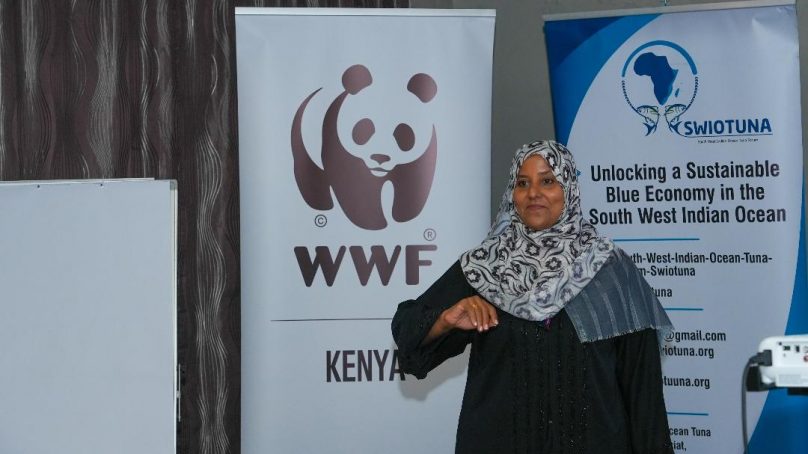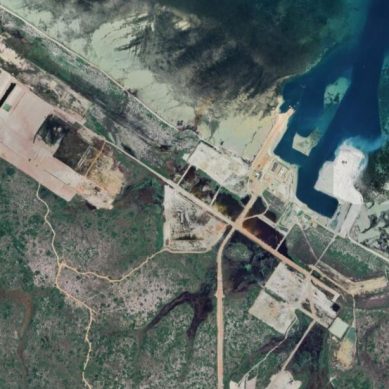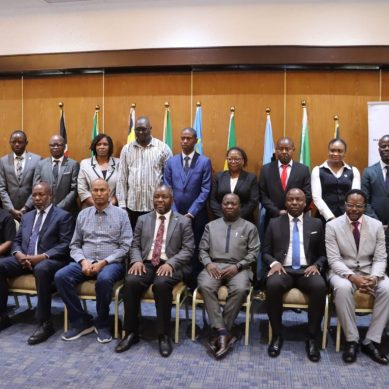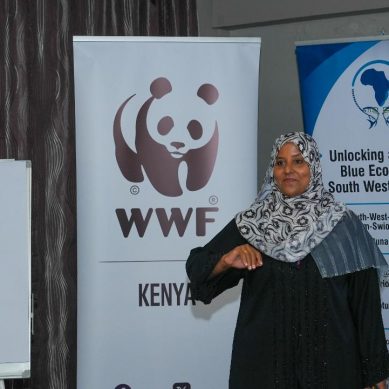
World Wide Fund for Nature (WWF) has convened a regional learning and reflection workshop in Mombasa to assess progress and share lessons from its Sustainable Blue Economy Programme, implemented across five Western Indian Ocean (WIO) countries since 2021.
The weeklong workshop brings together representatives from civil society organisations (CSOs), fisheries alliances and regional networks working to strengthen governance, sustainability and inclusivity within the blue economy sector.
According to Asma Awadh, a representative from WWF Kenya, the programme seeks to build the capacity of local CSOs in governance, legal, and technical aspects of fisheries management and blue economy policy.
“We have been implementing this programme in Kenya and four other WIO countries since July 2021, with the aim of increasing the capacity of local CSOs, especially in governance, legal frameworks, and advocacy on sustainable fisheries,” she said.
“This week we are coming together to share lessons on what has worked well, where we can improve, and how to strengthen collaboration among partners,” she noted adding that inclusivity remains a key focus of the initiative, ensuring that women, youth, and marginalised fishing communities are represented through local CSOs such as the Kenya Tuna Fisheries Alliance.
“These CSOs work directly with women and youth groups in fisheries to advocate for inclusivity and better policies that benefit small-scale fishers,” she added.
While the programme has made progress in awareness creation and policy engagement, Awadh pointed out that the fisheries sector still faces challenges, including limited funding and capacity gaps among Beach Management Units (BMUs).
“Studies show that only about 22 per cent of BMUs have the governance capacity needed to fully implement their work. This shows there’s still a lot to be done,” she said.
At the regional level, Naghmana Zafar, representing WWF’s regional team, highlighted the programme’s success in enhancing collaboration between CSOs and regional fisheries management bodies such as the Indian Ocean Tuna Commission (IOTC) and the South West Indian Ocean Fisheries Commission (SWIOFC).
“Engagement with regional organisations has significantly improved. CSOs are now able to contribute to policy advocacy, review of regulations and make recommendations to their governments,” she said, emphasizing the need for continued collaboration beyond the current project cycle.
A related study by WWF under the programme revealed that while the region remains rich in fish resources, regulatory and investment gaps persist.
“More than 50 per cent of blue economy investments have gone to transport and logistics, while fisheries account for less than one percent. If we want a sustainable fisheries sector, we must rethink how investments and policy priorities are structured,” Zafar noted.
On his part, Elijah Ngoa, the National Coordinator of the Tuna Fisheries Alliance of Kenya (TuFAK), one of the CSOs working with WWF under the Sustainable Blue Economy Programme funded by NORAD, lauded the partnership for strengthening the capacity of local actors to engage in national fisheries governance.
“We have benefited a lot through this capacity-building programme. It has enabled us to engage the government on several fronts, including national tuna dialogues and joint policy reviews,” he said.
“Our approach is to ensure that CSOs, including NGOs, the private sector, and Beach Management Units, are part of the decision-making table so their views are taken into account,” he added.
Ngoa further noted that the alliance has made progress in tackling illegal, unreported and unregulated (IUU) fishing.
“We have successfully lobbied the government to adopt a National Plan of Action on IUU fishing, which is now in its final stages. Once implemented, this framework will close the loopholes that have led to massive losses from illegal fishing activities and help the fisheries sector contribute significantly to Kenya’s GDP,” he explained.
Doreen Nasimiyu, the Kenya coordinator of the South West Indian Ocean Tuna Forum, said the programme has empowered CSOs to engage more meaningfully in fisheries policy development and advocacy at both national and regional levels.
“Our members from Kenya, Tanzania, and Mozambique have been actively involved in reviewing fisheries laws and strategies to ensure that the voices of small-scale fishers are reflected,” she said.
“We’ve also been engaging with IOTC and SWIOFC to push for the implementation of regional instruments like the Minimum Terms and Conditions for granting fisheries access arrangements, which are key to combating illegal, unreported and unregulated fishing,” Nasimiyu said.
The Sustainable Blue Economy Programme, supported by WWF and partners, aims to strengthen regional cooperation, promote sustainable management of marine resources, and ensure equitable benefits for coastal communities across the Western Indian Ocean region.
- A Tell Media / KNA report / By Chari Suche







